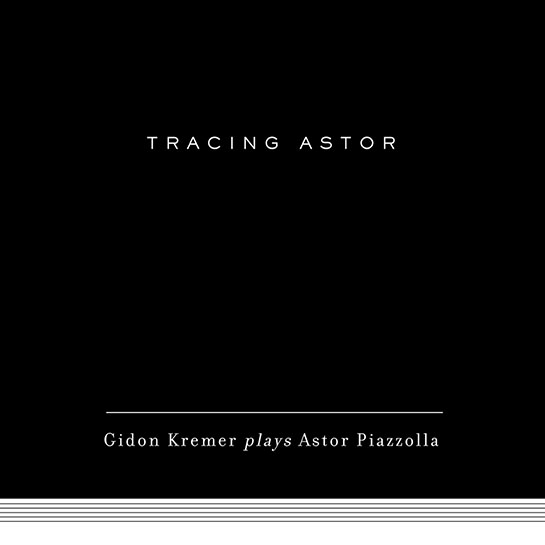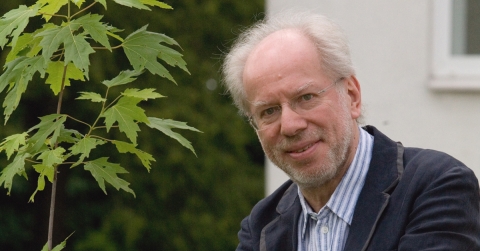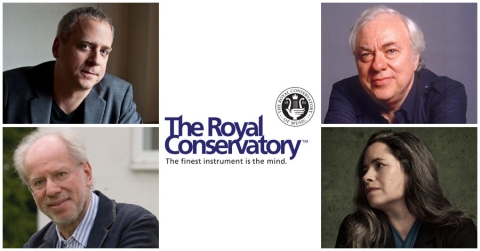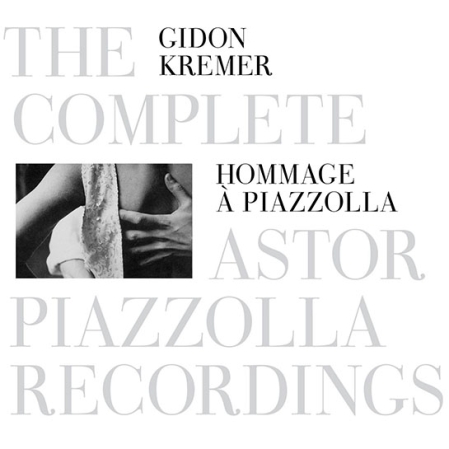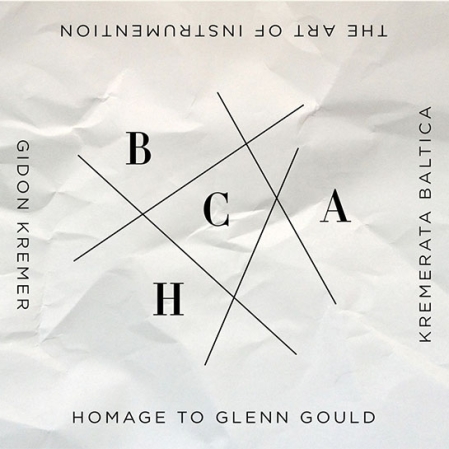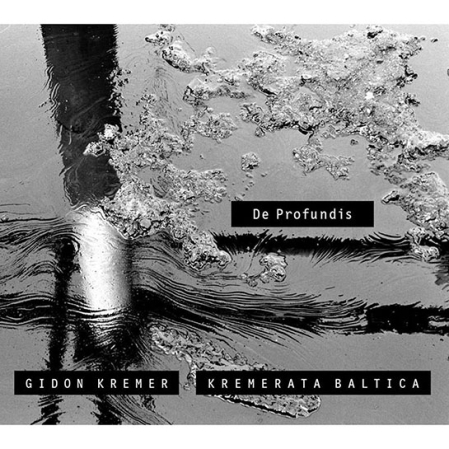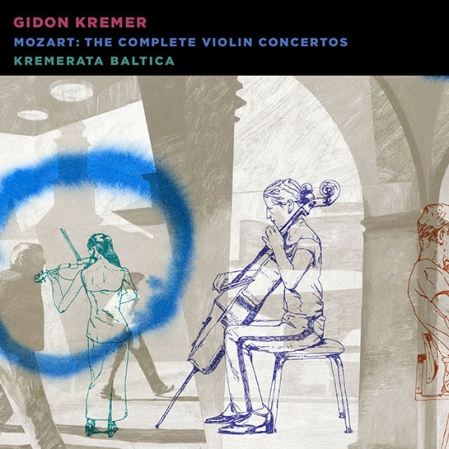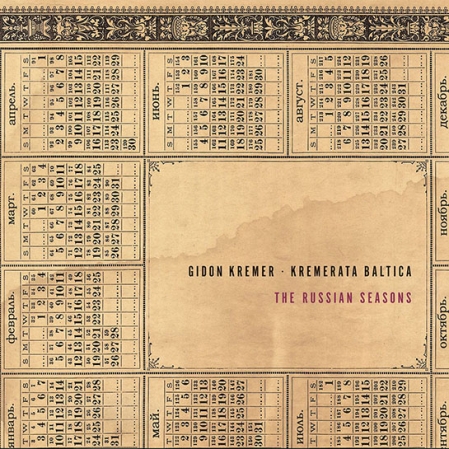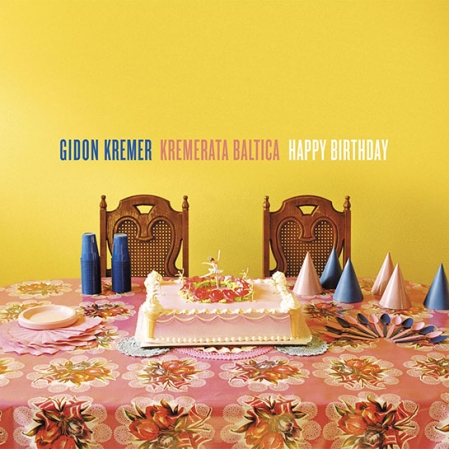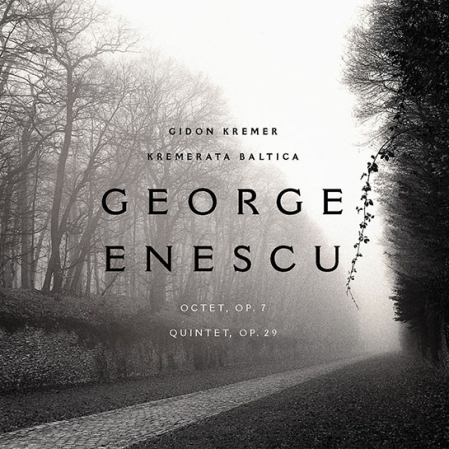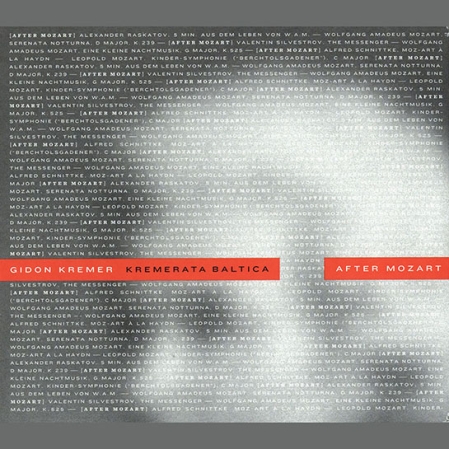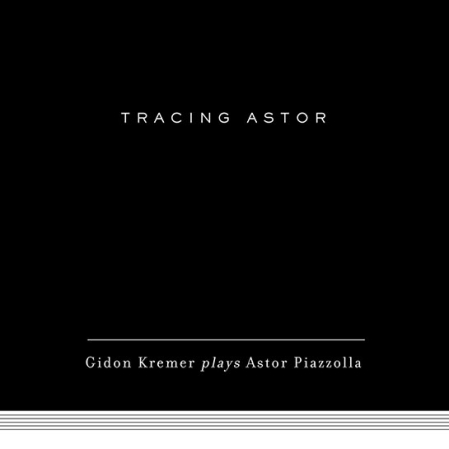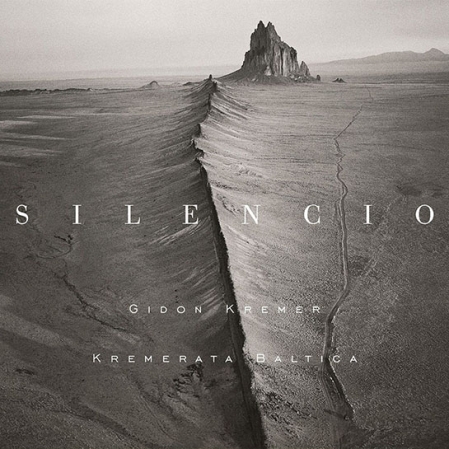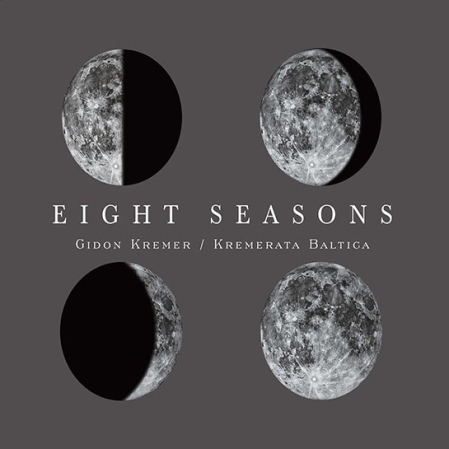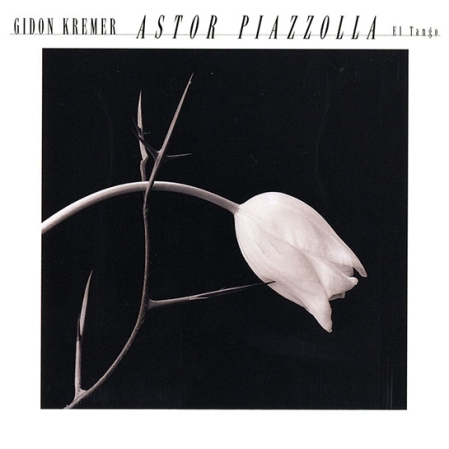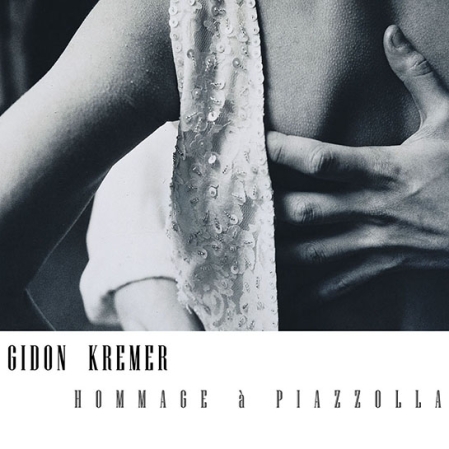Tracing Astor is the third in a trilogy of Gidon Kremer albums celebrating the music of Argentine composer Astor Piazzolla and, for Kremer, marks a final statement in his recording of Piazzolla’s music for violin and strings. "Although many artists have tried their hand at interpreting Piazzolla," says the Boston Globe, "Kremer was there first, and remains the best."
“Although many artists have tried their hand at interpreting Piazzolla, Kremer was there first, and remains the best … [N]o one has made a more convincing case for the emotional depth of this music.” —Boston Globe
Tracing Astor, the third in a trilogy of albums celebrating the music of Argentine composer Astor Piazzolla, has been released on Nonesuch Records. Following in the tradition of acclaimed albums Hommage à Piazzolla (1995) and El Tango (1997), this release features Kremer in a trio setting with Ula Ulijona (viola) and Marta Sudraba (cello), leading soloists of Kremer’s much-lauded young chamber orchestra, Kremerata Baltica. Additional contributions are made by the poet Horacio Ferrer (a close friend and associate of Piazzolla’s, with whom he collaborated on Maria de Buenos Aires) and the young Argentine cellist Sol Gabetta.
For Kremer, Tracing Astor marks a final statement in his recording of Piazzolla’s music for violin and strings. It is the natural conclusion to what has been a long and fruitful journey begun in 1995 with the Grammy-nominated Hommage à Piazzolla, followed by El Tango, and Eight Seasons (2000), which juxtaposed Piazzolla’s Four Seasons with Vivaldi’s. Kremer plans to keep all the Piazzolla music among his vast repertoire.
The six Tango-Etudes on Tracing Astor were originally written for flute and are presented here for the first time as a cycle for violin, arranged by Kremer. It is Kremer’s belief that the etudes grew out of Piazzolla’s fascination with Bach, whose music he adored from earliest childhood and played often on the bandoneón. Indeed the Tango-Etudes have a Bach-like texture—compact, playful, sophisticated and emotionally complex all at the same time.
The works for duo and trio configurations were arranged by Leonid Desyatnikov, who also played a major role in the Piazzolla arrangements for the Eight Seasons project. The piece Tracing Astor, composed by Desyatnikov, can be considered the glue that holds the album together. Kremer describes the piece as a reflection on Piazzolla’s style and “an introduction to the laboratory of another wonderful composer.” This piece was written by Desyatnikov specifically for this album and is dedicated to the performers, as are his many arrangements of Piazzolla’s work to date.
Violoncelles, Vibrez!, a piece for two cellists, was composed by Giovanni Sollima, a cellist and composer revered among musicians and critics alike. It was chosen for this album because Kremer felt that Piazzolla would have appreciated its emotional intensity: “I felt like this piece would be a contribution, another way of looking at Astor from a distance in style, but still looking at Piazzolla’s emotional world.”
Concluding the album is a work titled All in the Past (Remembering Oskar Strock), written by fellow Riga, Latvia native Georgs Pelecis, with whom Kremer also attended the Moscow Tchaikovsky Conservatory. Oskar Strock, also a Riga native, was often called “a King of Tango” (referring to traditional Slavic Tango) because of his prolific tango composing. In the 1930s his pieces were sung all over the Soviet Union, but because of differing ideologies he fell from public prominence in the 1950s and 60s. Here his memory is recalled with Kremer’s recording of Pelecis’s homage.
Kremer, in speaking about Tracing Astor and his many years of exploring Piazzolla’s music, said, “I’m just happy to have been able to contribute a little bit, and for the fact that Piazzolla is being taken more seriously as an important figure of our time. Astor is a complex personality as composer and performer, one who cannot be put on a shelf or categorized simply as a tango master.”
PRODUCTION CREDITS
Produced by Helmut Mühle and Gidon Kremer
Recorded September 1999 at NLG Studio, Berlin
Engineer: Philipp Nedel
Edited by Gudrun Maurer
Tango-Etudes
Produced and engineered by Peter Laenger, Tritonus Musikproduktion, Stuttgart
Recorded December 1996 at Studio Guillaume Tell, Paris
Assistant Engineer: Stephane Briand
Violoncelles, Vibrez!
Recorded September 2000 at Feldkirch Conservatory Chapel, Feldkirch, Austria
Assistant Engineer: René Möller
All in the Past (Remembering Oskar Strock)
Recorded February 2001 at NLG Studio, Berlin
Assistant Engineer: Niels Müller
All compositions by Astor Piazzolla, except track 10 by Giovanni Sollima, track 12 by Leonid Desyatnikov, track 13 by Georgs Pelecis. Arranged by Leonid Desyatnikov (1, 6, 11), Gidon Kremer (2-4, 7-9, 11). Text for track 5 by Horacio Ferrer.
Design by John Gall
Cover image: Large Shadow, Sixth Avenue, New York, 1986, courtesy the Bruce Cratsley Archive, Sarah Morthland Gallery, New York
Executive Producer: Robert Hurwitz
79601
MUSICIANS
Gidon Kremer, violin (2-9, 11-13)
Ula Ulijona, viola (1, 5, 6, 11, 12)
Marta Sudraba, cello (1, 5, 6, 10-12)
Sol Gabetta, cello (10)
Leonid Desyatnikov, piano (12)
Horacio Ferrer, voice (5)
Kremerata Baltica (10, 13):
Violin: Eva Bindere*, Dzeraldas Bidva, Migle Diksaitiene, Andrejs Golikovs*, Inga Gylyte, Elo Ivask, Miroslava Kotorovytch, Marija Nemanyte, Migle Serapinaite, Oskars Silins, Darja Smirnova, Andrei Valigura*, Rasa Vosyliute, Sanita Zarina
Viola: Janis Lielbardis*, Michal Ondruj, Ula Ulijona*, Vidas Vekerotas, Zita Zemovica
Cello: Peteris Cirkšis, Giedre Dirvanauskaite, Ilze Grudule, Eriks Kirsfelds*, Marta Sudraba*
Bass: Danielis Rubinas, Indrek Sarrap
* Leaders


